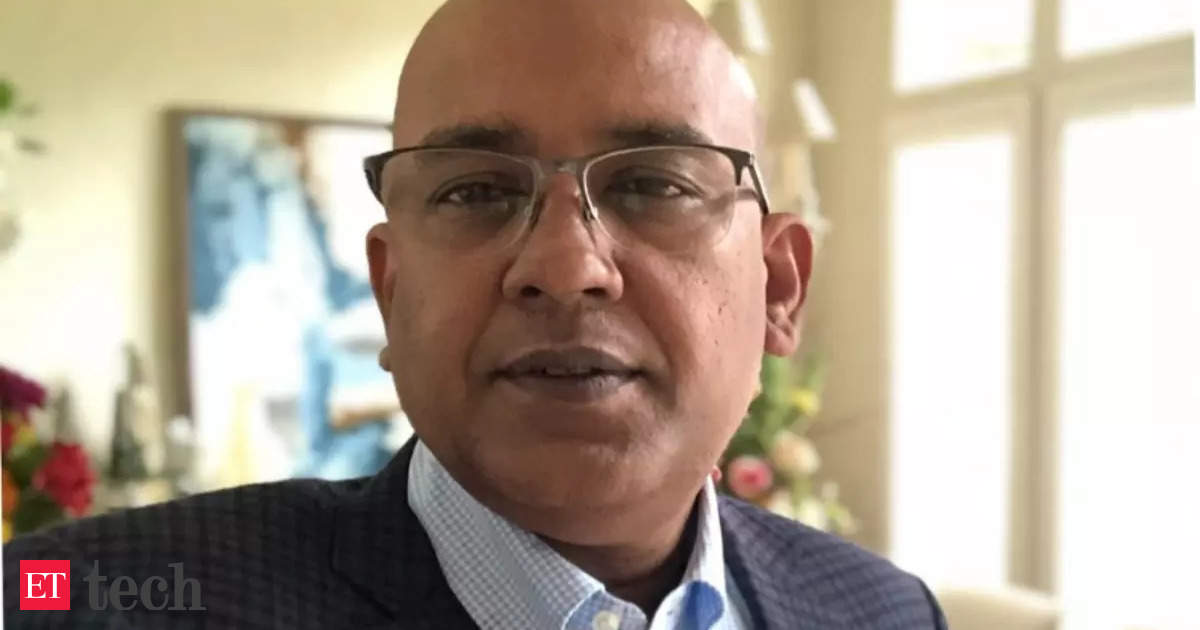“I think we see the future for digital infrastructure data-ga-onclick=”Inarticle articleshow link click#Tech#href” target=”_blank” href=”https://economictimes.indiatimes.com/definition/business” rel=”noopener”>business ramping up on the back of hybrid activity on the data centre side, requirement for people to collaborate across continents and cultures, hybrid workplaces that have become a norm post-Covid.”
Elevate Your Tech Prowess with High-Value Skill Courses
| Offering College | Course | Website |
|---|---|---|
| IIM Kozhikode | IIMK Advanced Data Science For Managers | data-ga-onclick=”Emeritus_edit_articles_click#106354920#tech” target=”_blank” rel=”nofollow sponsored noopener” class=”btn btn_visit” href=”https://iimk.emeritus.org/iimk-advanced-data-science-for-managers/index.php?utm_source=timeset&utm_medium=affiliate&utm_campaign=times_et_article_textcta_edit&utm_content=106354920″>Visit |
| IIT Delhi | IITD Certificate Programme in Data Science & Machine Learning | data-ga-onclick=”Emeritus_edit_articles_click#106354920#tech” target=”_blank” rel=”nofollow sponsored noopener” class=”btn btn_visit” href=”https://iitd.emeritus.org/iitd-certificate-programme-in-data-science-machine-learning/index.php?utm_source=timeset&utm_medium=affiliate&utm_campaign=times_et_article_textcta_edit&utm_content=106354920″>Visit |
| Indian School of Business | ISB Product Management | data-ga-onclick=”Emeritus_edit_articles_click#106354920#tech” target=”_blank” rel=”nofollow sponsored noopener” class=”btn btn_visit” href=”https://online-er.isb.edu/product-management/index.php?utm_source=timeset&utm_medium=affiliate&utm_campaign=times_et_article_textcta_edit&utm_content=106354920″>Visit |
“We are looking at double-digit data-ga-onclick=”Inarticle articleshow link click#Tech#href” href=”https://economictimes.indiatimes.com/topic/growth” target=”_blank” rel=”noopener”>growth organically over the next few years and expect to push towards $2 billion (Rs 16,632 crore) revenues in the next three years,” Verma said.
The company had reported a consolidated revenue of Rs 6,233 crore in FY23, as per a BSE filing.
Black Box works with big tech companies like Amazon, Google, Meta, and Microsoft, to help build their high-density data-ga-onclick=”Inarticle articleshow link click#Tech#href” href=”https://economictimes.indiatimes.com/topic/data-centres” target=”_blank” rel=”noopener”>data centres.
Verma said the opportunity for the company lies in 5 and 10 gigawatts of data centres, which is a USD 300 billion-plus market globally.
Discover the stories of your interest
“Our addressable market is 15% of that. That’s $45 billion. Even a 5% of that is $2 billion.” “I think we are focused on getting the right talent so that we are able to address the potential that we see in the infrastructure space worldwide, and of course America will always lead there,” Verma said.
Black Box gets 70% of its business from the US, and 15% from Europe, and the rest from the Asia Pacific.
As we speak, I think we are 4,000-people-strong, operating in 35 countries. From a revenue standpoint, I think we are touching about Rs 7,000 crore. That’s about a 7-8 times increase from 2019, when we were only at Rs 700 crore.”
India is important from a talent perspective, he said, adding that the company recently launched a centre of excellence in Bengaluru, which will expand over the next couple of years.
If you reach $2 billion, I expect significant hiring. The number of people will possibly go up from 4,000 to 7,000-8,000 and a large part of the hiring will also be in India,” Verma said.
It will be critical for Black Box to bring in high quality talent in Bengaluru and Mumbai to support our global rollout, he said, adding, “And that has started off with 500 people last year in Bengaluru… we are expecting to double that over the next couple of years.”




![[CITYPNG.COM]White Google Play PlayStore Logo – 1500×1500](https://startupnews.fyi/wp-content/uploads/2025/08/CITYPNG.COMWhite-Google-Play-PlayStore-Logo-1500x1500-1-630x630.png)